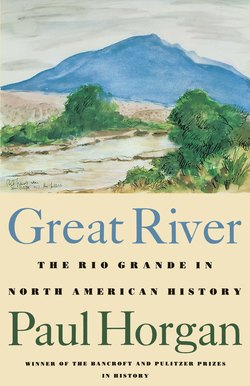Читать книгу Great River - Paul Horgan - Страница 20
На сайте Литреса книга снята с продажи.
Оглавление5.
On the Edge of Change
So the Pueblo people agreed without exception in their worship, their work, their designs for making things in the largest to the smallest forms, their views of property, the education of their children, the healing of their sick, and their view of death.
A clear and simple and within its limits a satisfactory plan of living together was understood by everybody, and complied with. But tragically it lacked the seed of fullest humanity. Mankind’s unique and unpredictable gift was not encouraged to burgeon in Pueblo society. Individuality, the release of the separate personality, the growth of the single soul in sudden, inexplicable flowering of talent or leadership or genius, were absent. In harmony with all nature but individual human nature, the people retained together a powerful and enduring form of life at the expense of a higher consciousness—that of the individual free to unlock in himself all the imprisoned secrets of his own history and that of his whole kind, and by individual acts of discovery, growth and ability, to open opportunities that would follow upon his knowledge for all who might partake of them. It was costly, that loss of the individual to the group. The essential genius of humanity, with all its risks, and yet too with its dazzling fulfillments, was buried deep in the sleeping souls of the Indians by the Rio Grande.
They solved with restraint and beauty the problem of modest physical union with their mighty surroundings.
But only to their gods did they allow the adventure, the brilliance, the gift of astonishment that came with individuality. Those mythic heroes, those animal personifications ranged sky and earth and underworld performing prodigies, releasing dreams for the dreamers, perhaps beckoning inscrutably toward some future in which the people too might find freedom before death to be individuals in nature instead of units among units in a perfected strict society whose loftiest expression of the human properties of mind and soul was an invisible tyranny of fear that bent them in endless propitiation before inanimate matter.
The deep alien sadness of such a life was born with dignity. They lived like figures in a dream, waiting to be awakened. Possibly if left to their own time and development, they would have awakened by themselves to discover another and greater environment than the physical one to which they were already accommodated with economy and tenacity. The inner environment of the conscience, the responsible and endlessly replenished human soul, the recognition of God within mankind above a multitude of gods without—these might have come as their own discoveries to those people who already had climbed far from forgotten antiquity.
But men of another order were making ready to come to the river as ministers of enlightenment and shock and the strongest necessity of their epoch.
